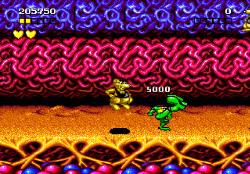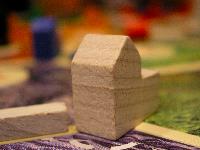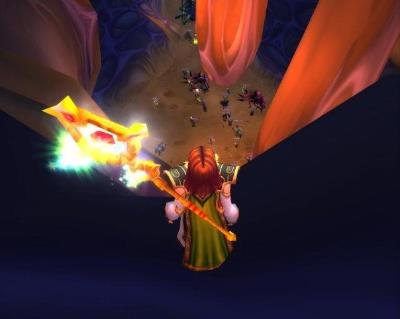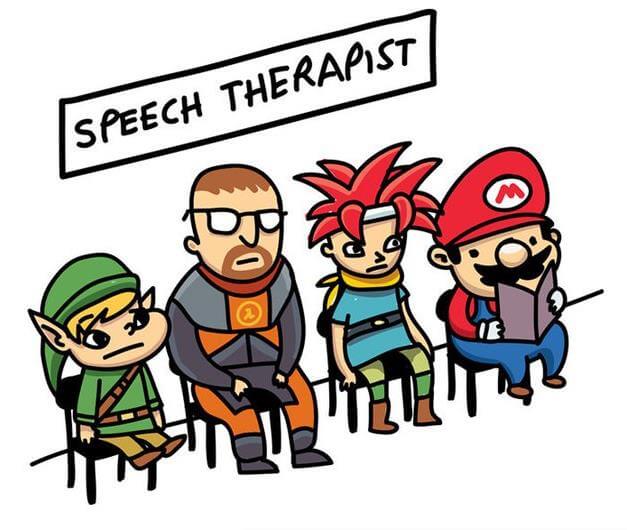I love to play games. Board and card games were common family activities growing up. Tabletop campaigns, Settlers of Catan, and World of Warcraft took up most of my free time in college (and beyond). I was sadly forced to retire from most of my gaming habits once the time demands of adulthood set in, but I still love a complex German board game or well-written RPG on the weekends. And, of course, I love to play games in speech therapy. My two favorite things!
"Gamification" has become a catchy word these past few years. One of this year's ISAD papers proposes a gamification approach for speech therapy, particularly with children. Grant Meredith, the author, describes gamification as "using game mechanics and techniques to encourage, motivate and excite participation, learning and collaboration in non-gaming contexts."
There is a fundamental aspect of this definition that I disagree with, and it is the reference to "non-gaming contexts". In my opinion, everything is a gaming context!
Most speech pathologists, particularly those who work with children, have dozens of games crowding their supply bags. Cariboo, Candyland, Mad Gab, Heandbandz, Would You Rather?. Typical therapy activities include games, but they are a means to an end . "We're going to practice smooth speech while we play Guess Who." Inevitably, especially with young kids, the game is more interesting and the speech task becomes secondary. And why not? The game is more fun.
True gamification (in my experience) comes from making therapy the game, not simply using a game to achieve therapy. This includes levels, points, achievement, competition, and challenge . In essence, all games are challenges that we take on, because we want to win . Winning is fun.
One way to achieve this is by assigning points based on target accuracy. "Every time you catch a block, you get a point. But if I catch it first, I get a point." Competition is a key ingredient. If they miss the first block or two, I celebrate my lead. "Hah! I'm two points ahead!" I have yet to encounter anyone who is satisfied with losing to their speech therapist without a fight.

Speech Therapy Level: Never.
Even though we often play "regular" games while doing this activity, occasional friendly competitive jabs are all it takes to keep therapy as the more fun (re: challenging!) game. At the end of the session, I tell them the level gets harder next week. "This week I gave you two seconds to catch it. Next week you only get one. So you better practice." And they do.
The other benefit to this approach is that you can do this alongside literally any activity; "speech"-specific games are not necessary. Playing two games at once (the therapy game and the pass-the-time-activity/game) is cognitively demanding, and I present this as an extra challenge: you have to be good enough to score speech therapy points while actively haggling for ore. Favorite or more exciting games function simultaneously as levels and rewards. It's harder to monitor your speech when playing a co-op video game than a turn-based board game, but we can move to that level next week since you owned the tabletop level this week.

"Road", "brick", "ore"...lots of rhotics!
I named my practice "speech IRL" as a nod to my MMORPG days. The acronym for "in real life" is used to signal whether someone is talking about the game world or their real life. So maybe it's a bit ironic that my favorite approach to functional therapy involves turning everything into a game. But hey...life's more fun that way!

Before I was a speech-language pathologist.

